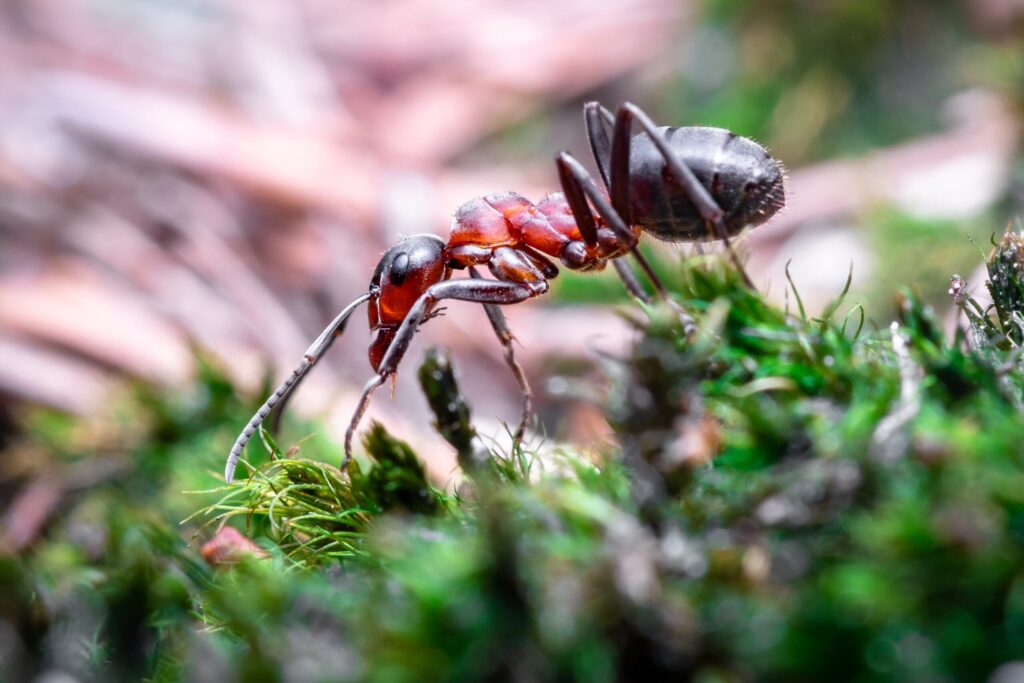Ants may be tiny, but when they invade your home, they quickly become a big problem. An ant infestation is more than just an annoyance—ants can contaminate food, damage property, and establish colonies that are tough to eliminate.
The good news is that you can take practical steps to stop them. This guide will show you exactly how to prevent ants from entering the house, from sealing entry points to maintaining a clean living space and knowing when to call in professional pest control.
Step 1: Seal All Entry Points
Ants are experts at sneaking indoors through cracks and gaps you might not even notice. To keep them out, you need to think like an ant and block every potential entryway.
Checklist for sealing entry points:
- Walk around the exterior of your home and look for cracks in the foundation, gaps around windows and doors, and holes where cables or pipes enter.
- Use silicone caulk or weather-stripping to close small gaps. For larger holes, plaster or expandable foam may be necessary.
- Inspect window and door screens to make sure they’re intact.
- Cover vents with fine-mesh screens to prevent ant entry.
Sealing your home not only keeps ants out but also improves energy efficiency.
Step 2: Eliminate Food Sources and Keep Your Home Clean
Ants are constantly searching for food and water. If your home provides easy access to either, they’ll keep coming back. One of the best methods for how to prevent ants from entering the house is to make your space less inviting.
Checklist for eliminating food sources:
- Wipe up crumbs and spills immediately—especially sugary substances that attract ants quickly.
- Clean kitchen counters, stovetops, and tables with vinegar or mild soap and water after meals.
- Store food in airtight containers, including cereal, sugar, flour, and pet food.
- Wash dirty dishes promptly and never leave them in the sink overnight.
- Sweep, vacuum, and mop regularly, paying extra attention to areas under appliances where crumbs collect.
Step 3: Use Natural Ant Deterrents
Ants rely on scent trails to navigate. You can disrupt these trails and deter ants with simple, natural remedies.
Effective natural ant deterrents:
- Vinegar spray: Mix equal parts vinegar and water, then spray along baseboards, counters, and entry points.
- Essential oils: Peppermint, tea tree, or cinnamon oil mixed with water makes an effective ant-repelling spray.
- Spices: Sprinkle cinnamon, black pepper, or cayenne pepper along entryways. These create both a scent and physical barrier.
Step 4: Know When to Call a Pest Control Expert
Sometimes, DIY prevention isn’t enough. If ants keep returning despite your best efforts, you may be dealing with a larger or hidden colony.
Signs it’s time to call for professional help:
- Ant trails reappear within days of cleaning.
- Large colonies are visible around your foundation or yard.
- You spot carpenter ants, which can cause serious structural damage to wood inside your home.
Professional pest control experts can identify the ant species, locate nests, and apply targeted treatments that work long-term.
Final Thoughts: Keep Your Home Ant-Free
Learning how to prevent ants from entering the house is the first step to maintaining a pest-free home. By sealing entry points, reducing food sources, and using natural deterrents, you can greatly reduce the risk of an ant infestation.
But if ants keep invading or you suspect a larger colony, it’s time for expert help.
At Pestward, we specialize in safe, effective ant pest control in Ontario. Our team identifies the source of the infestation and eliminates it quickly—so you can enjoy an ant-free home with peace of mind.
Call Pestward today for professional ant control services in Ontario and stop ants in their tracks before they take over your home.

